Would you be surprised if you found a lizard behind your cupboard? Don’t be!
These little guys simply love spending time in darker places, so furniture, cupboards, and other stuffed corners in our houses provide plenty of hiding spots for them.
Today we’re here to tell you some more interesting things about lizards – why they go inside the house, how they survive winter, where can you find them when it’s colder outside…
Oh, and one more thing – where exactly do they go at night?
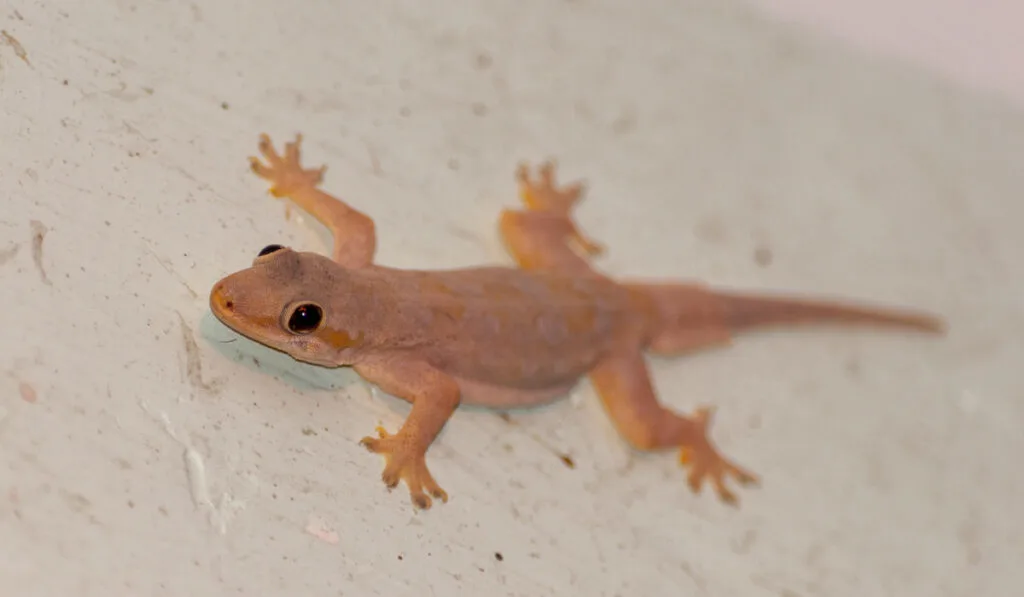
Table of Contents
Where Do Lizards Go At Night and Where Do They Sleep?
Most lizards are diurnal which means they are active over the day and inactive during the night.
Sleeping is an activity that can expose them to potential predators, so they need to be careful about choosing the right place to rest.
In the house, they will go for some darker places—just like during the day, when they hide from you or some other potential danger.
When outside, you will, for instance, find them sleeping on leaves.
In that case, they’ll have their head directed towards the open path to see if there are any potential predators coming to chase them.
On the other hand, sometimes you will notice lizards moving in your house during the night.
If you see them on walls, it’s most likely you have geckos. They hide over the daytime and are active during the night.
Geckos go for insects, which makes them quite useful in keeping your house insect-free.
No worries if you see some of them—they are not dangerous and are definitely more afraid of you than you are of them.
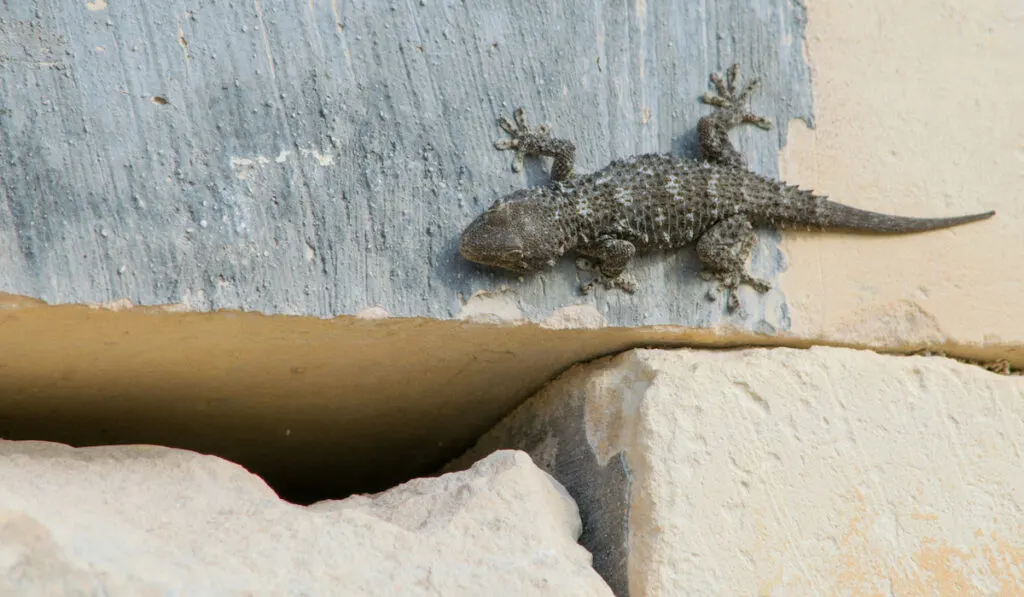
How Much Do Lizards Sleep?
The previous belief was that some characteristics and sleeping patterns such as rapid eye movements were only present in humans, birds, and mammals.
However, a recent study showed that bearded dragons—which are popular pets—actually go through similar phases during sleep.
This research determined that reptiles share some sleeping patterns with us.
However, where we usually have four or five slow-wave sleep cycles that last around 90 minutes each, the rhythm lizards have is faster and more regular, which results in hundreds of shorter sleeping phases.
This interesting discovery shows that mammals, birds, and reptiles have some similar features and suggests they had a common ancestor around 320 million years ago.
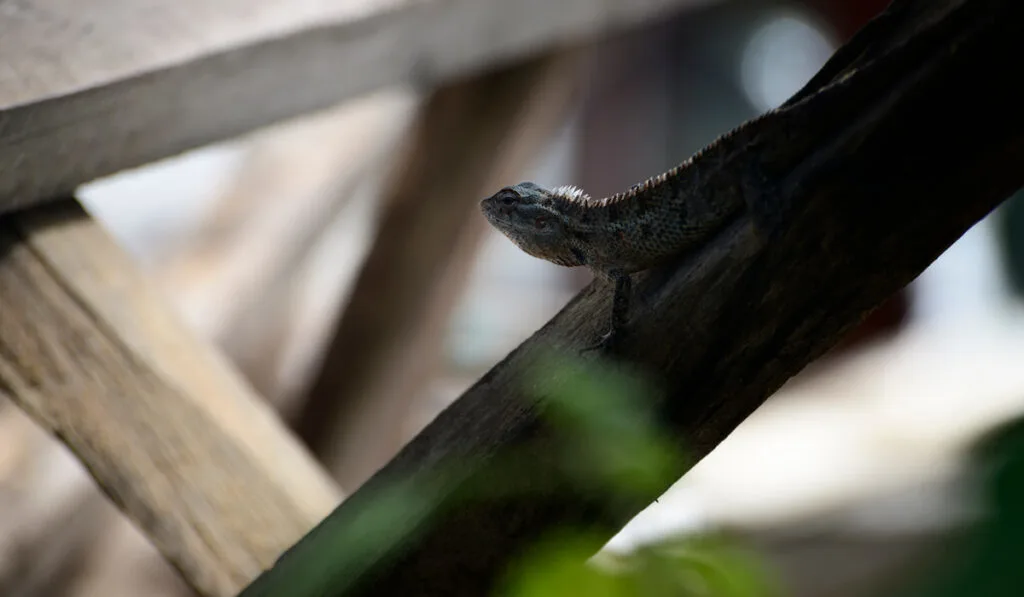
How Do Lizards Stay Warm At Night?
Lizards are ectotherms, which means their body temperature adjusts to the environment surrounding them.
Mammals, birds, and humans are endotherms—our internal functions are what keeps our bodies at a higher temperature, despite the weather outside.
There are around 6,000 types of lizards.
Some bigger species such as the Komodo dragon have bigger bodies where they can trap more heat. That allows them to keep their body temperature rather consistent—almost like mammals.
Smaller lizards have a much harder time maintaining temperature this way.
Their tiny bodies can cool down so quickly they feel subtle changes, such as when the sun moves behind a cloud.
For instance, when they are in the shade, their metabolism slows down to a near-hibernation level.
After moving back to a spot in the sunlight, they go back to their hyperactive level again.
When they are cold, which is usually during the night, lizards don’t need that much food to survive.
Because of that, they simply look for some hidden place that will keep them warm.
You can find them in tree trunks, in holes in the soil, or even burrowed under leaves.
Yes, they’re waiting for warmer days to keep up with all their daily activities – as most of us do as well!
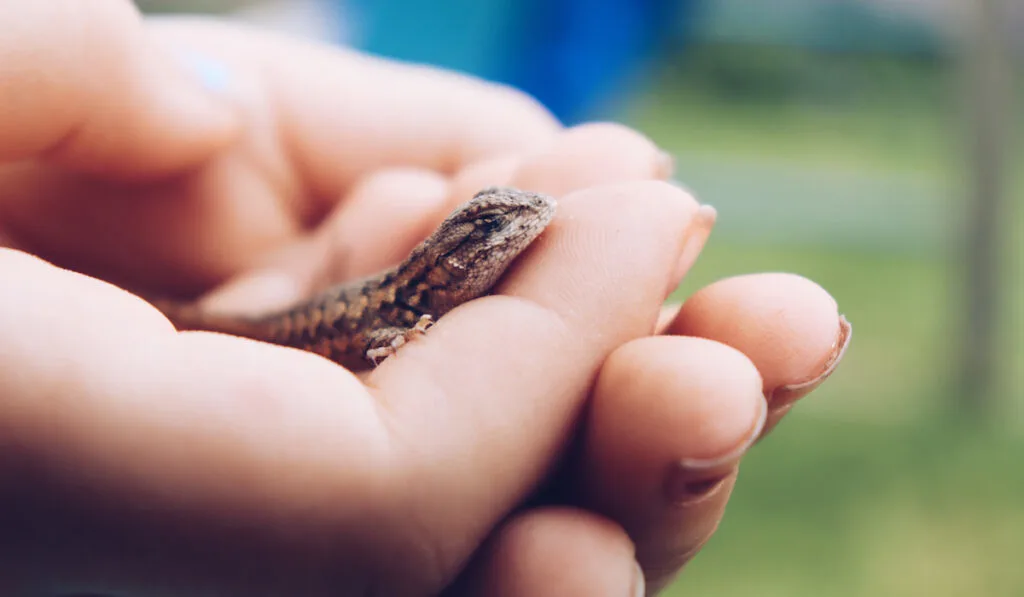
What Happens To Lizards In Winter?
You have probably noticed there are no lizards crawling all over your backyard when it’s cold outside.
The winter season is a bit longer period when they need to find even better places to hide and stay warm.
Lots of reptiles can experience serious issues with colder weather, such as slowed metabolism, decreased heart rate, or lowering of their body temperature in general.
Lizards don’t hibernate; they are actually going through a similar yet lighter phase called brumation.
When hibernating, the animal goes into a deeper sleep.
During brumation, lizards bury themselves in holes or similar dark and hidden places, but still sometimes go out to fulfill the basic needs of their bodies.
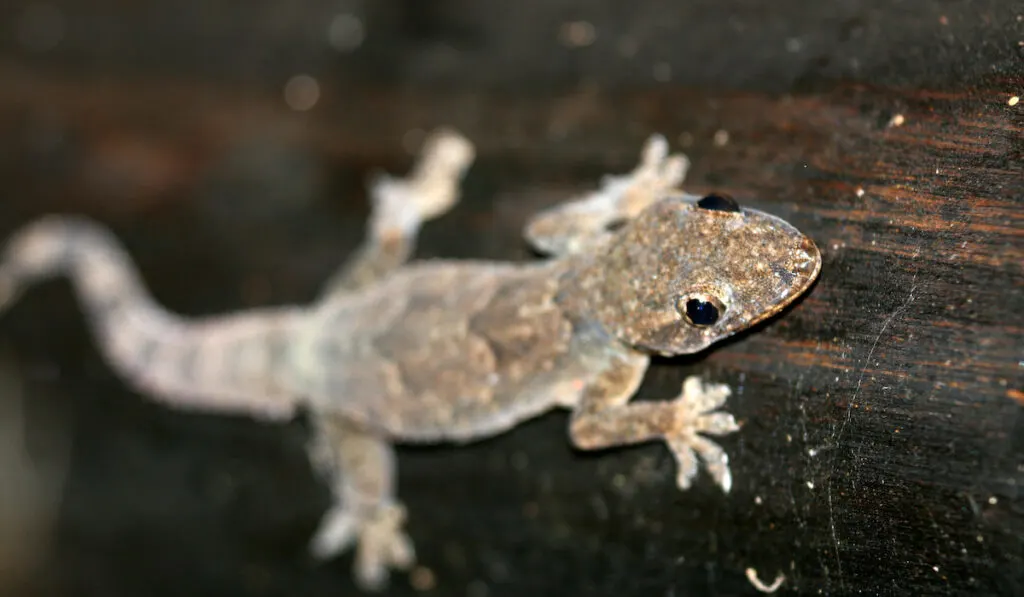
Will Lizards Crawl In Your Bed?
Well…let’s just say it can happen.
The first case where they’ll do that is when you’re dealing with an infestation.
The second scenario is when lizards don’t have enough space in your house, so they’ll accidentally crawl into your bed.
We say accidentally because they, like many other wild animals, avoid coming closer to humans.
They see us as a potential threat so they will run away as soon as they sense movement.
Coupled with that, smaller lizards are sometimes too curious so they may climb on your bed without even knowing what they are doing or looking for.
Their natural instinct is to immediately run away when they sense movement, but if you’re sleeping, they may not be completely aware of your presence.
In general, lizards have learned how to avoid humans through a long period of time living among us.
Plus, their instincts generally keep them away from our beds and other places we actively use.
Still, a good-quality mosquito net is one of the potential solutions that can help you have a peaceful night without unwanted visitors.
Some Final Words
Even though it can be a bit uncomfortable if you find lizards in some places in your home, most small lizards are quite useful.
Basically, they are there to help us deal with flies and smaller insects in our house.
To avoid lizards in our homes, it’s essential to keep our space clean and to air rooms in order to get rid of the insects.
Keeping insects away will also encourage the lizards to go find another prey somewhere in your backyard.
Sources:
- https://www.cuteness.com/article/kinds-lizards-nocturnal
- https://www.bbc.com/news/science-environment-36150972
- https://edition.cnn.com/2016/05/04/health/bearded-dragon-rem-sleep-irpt/index.html
- http://lizardsandfriends.org/?p=596
- https://www.lllreptile.com/articles/126-reptilian-brumation/
- https://jakesnatureblog.com/2017/02/26/lizards-in-winter/
- https://www.livescience.com/32585-how-do-lizards-cool-off-.html
- https://pestremovalwarrior.com/can-lizard-crawl-on-bed/
- https://english.mathrubhumi.com/news/columns/faunaforum/facts-you-didn-t-know-about-lizards-mathrubhumi-1.2028683

Carmen D
Friday 10th of December 2021
I lost my lizard in my house and can’t find it .What can I do